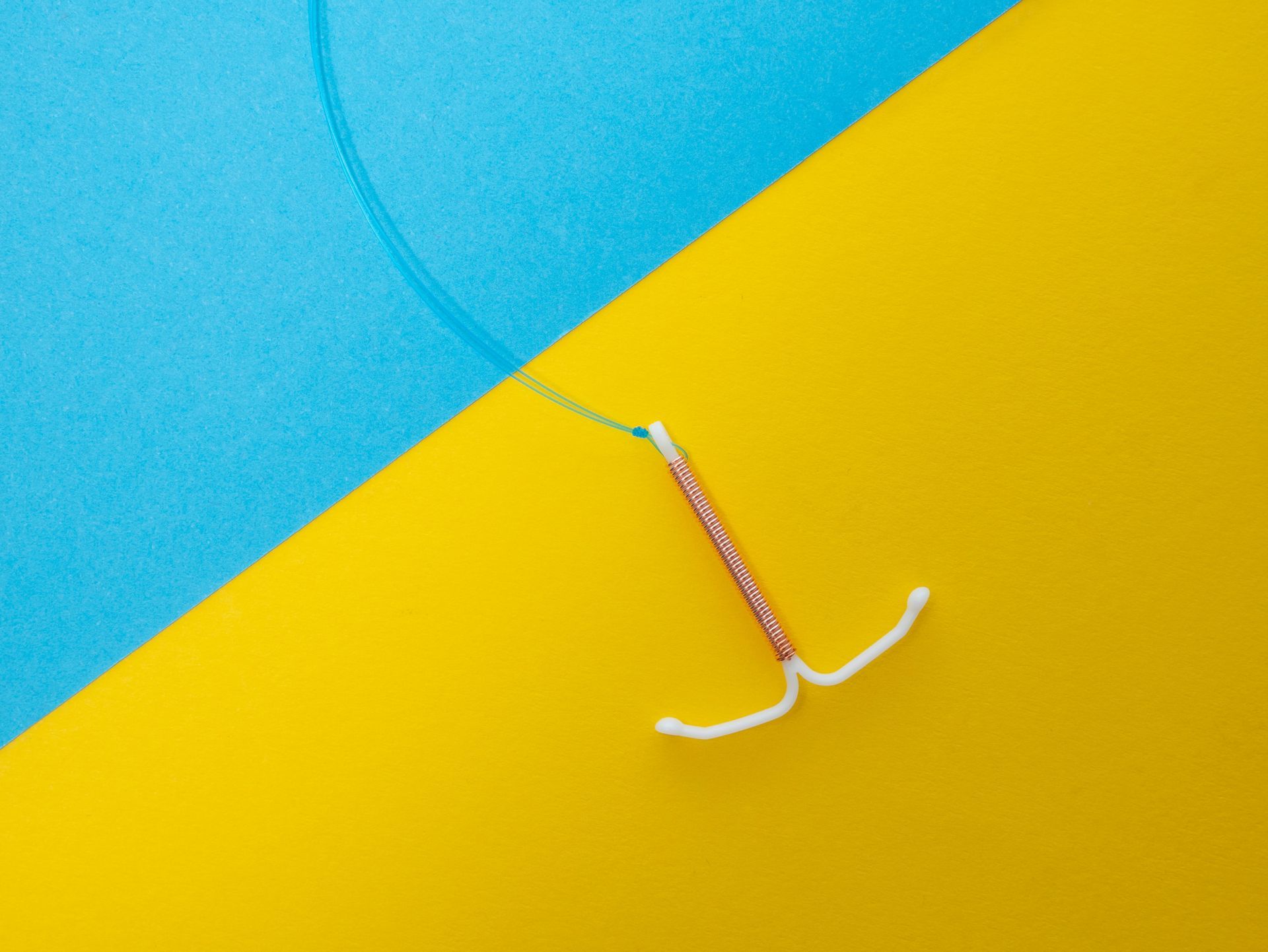IUD vs. the Pill - Understanding and choosing the best option to suit you
How do each of the options prevent pregnancy? The IUD vs. The Pill
It can be tough to decide what type of birth control is the right fit for your needs, and it's smart to do your research to discover whether the pill or an IUD (intrauterine device) is the best choice for you. It's important to work closely with your doctor to discuss your birth control needs. When you talk with your doctor about choosing a form of contraception, be sure to tell them about other forms of contraception you've used in the past, and what you'd like to see from your new form of contraception.
There are two forms of IUDs: copper and hormonal.
A copper IUD (brand name Flexi-T, ParaGard) can protect a person from pregnancy for 5 years, without using hormones. The device is made from plastic and copper, and works to create a toxic environment for sperm so that pregnancy does not occur. Copper IUDs protect from pregnancy right away. Many women like the copper IUD because it allows them to have sex without needing to consider birth control before each encounter. For women who have a history of blood clots, the copper IUD can also be a good choice, as it does not increase the risk of clots like certain types of hormonal birth control. The copper IUD can also be used as emergency contraception after unplanned sex or after failure of another type of birth control.
Hormonal IUDs (also known as Liletta, Kyleena, Skyla, and Mirena) work to deliver hormones to the body that prevent pregnancy from taking place. A progestin IUD is made of plastic and thickens cervical mucus, keeping sperm away from eggs. Like copper IUDs, hormonal IUDs can be used while breastfeeding. Copper IUDs work right away, but women who use hormonal IUDs need to wait seven days after the device is implanted in order to be fully protected against pregnancy.
Just like IUDs, there are two forms of birth control pills as well: the minipill and the combined pill.
The combined pill is a type of contraception that has two types of hormones (estrogen and progestin), while the minipill only contains one type of hormone (progestin).
Combination pills provide the body with a dose of hormones that stop it from ovulating, or releasing an egg. Normally, an ovary releases an egg once per cycle, resulting in the possibility of pregnancy. For women who are at risk for certain health problems (like blood clots), the combination pill may not be a good fit.
The minipill can be a good fit for women who are concerned about the multiple hormones included in the combination pill. This pill requires users to stick to a strict schedule, but when taken correctly, it's just as effective as the combination pill.
If you're interested in using the pill as your method of contraception, you'll want to have a talk with your doctor about which type of pill is the best fit for your needs. Be sure to bring up any issues in addition to contraception that you'd like the pill to address (such as helping with acne) so that your doctor can help you find the right pill for your body.
Which option is more effective?
Both an oral contraceptive and IUDs can be extremely effective forms of contraception.
The pill birth control method is 99% effective with perfect use, but due to user error, typical effectiveness is around 91%. Since there is no user error associated with IUDs, these methods are more reliable for many women, with effectiveness of about 99% as well.
There are several factors that can cause issues with the pill's effectiveness, including missing a pill, failing to take the pill at the same time every day, and experiencing gastrointestinal distress. If you're unsure of whether something that's going on with your body has affected the effectiveness of your birth control pill, it's important that you reach out to your doctor. You may need emergency contraception to ensure that you're continually protected against pregnancy.
Which has fewer hormones, the IUD or the Pill?
The copper IUD has no hormones, but both the pill and a hormonal IUD (like Skyla or Kyleena) contain hormones. For many people, hormonal birth control is a good fit for their needs, and can contribute to clearing up acne and protecting against certain types of cancer.
If you want to avoid hormones in your birth control, the copper IUD is likely a good fit. You may also want to try condoms or other barrier methods (Caya diaphragm) of contraception that allow you to protect yourself against pregnancy without putting hormones into your body. If you're not sure whether a hormonal type of birth control is a good fit for you, talk with your doctor about your concerns.
Side effects from the IUD and the Pill
It's smart to research potential side effects of your contraception before you decide what method is the best fit for you. Both the hormonal IUD and the pill can help your body fight acne by correcting existing hormonal imbalances. Since the copper IUD does not contain hormones, it's not effective in treating acne.
Both the pill and IUD contraception can cause changes in your menstrual cycle. These changes are not the same for everyone. Some people may find that their periods get heavier with an IUD. Some people who take the pill may find that they experience irregular bleeding. Some women who choose an IUD for birth control may find that their periods become irregular or that they suddenly have heavy periods. Talking with your doctor about whether you should test for pregnancy while you're on birth control can help you keep your peace of mind despite disruptions to your menstrual cycle.
Both the pill and the hormonal IUD can result in weight gain due to the changes these types of birth control can cause in your hormones. A copper IUD will not cause weight gain, as this type of contraception does not change your hormonal cycle.
Download our brochure and talk to your doctor about Flexi-T! You can stop worrying about the long-term impact of hormonal contraceptives on your body and the risk of getting pregnant. Instead be confident with a long-term reversible contraceptive solution that is highly effective at preventing pregnancy, without disrupting the body’s natural hormonal balance.













